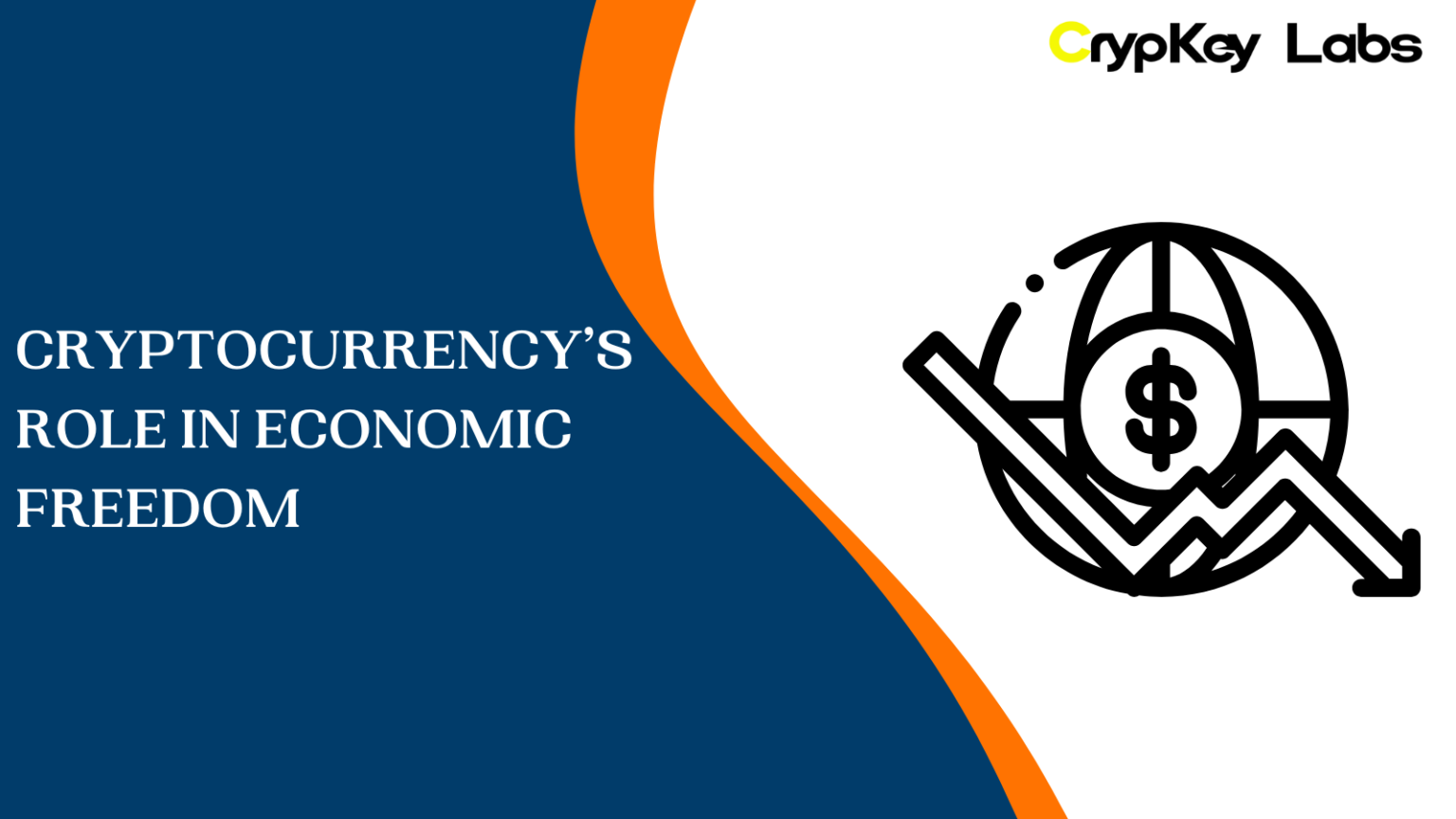In recent years, cryptocurrency has sparked global discussions on its potential to change the way we think about money, financial freedom, and access to economic opportunities. From Bitcoin to Ethereum, these digital assets have created a financial revolution that is not only reshaping how we invest but also challenging traditional financial systems. But what role does cryptocurrency play in economic freedom? Let’s dive into this fascinating intersection of technology and finance.
What is Economic Freedom?
Before exploring how cryptocurrency promotes economic freedom, it’s important to first understand what economic freedom really means. Simply put, economic freedom refers to the ability of individuals to make decisions about their own financial well-being without excessive interference from governments, institutions, or other central authorities. It encompasses everything from the right to own property and invest freely, to the ability to access financial services and engage in trade without unnecessary barriers.
Sadly, in many parts of the world, economic freedom is still out of reach for large segments of the population. Traditional banking systems and financial institutions often create barriers to entry, whether due to high fees, limited access, or rigid regulations. This is where cryptocurrency can play a transformative role.
How Cryptocurrency Promotes Economic Freedom
Decentralization: Power Back to the People
One of the core values of cryptocurrency is decentralization. Unlike traditional money systems, which are controlled by central banks or governments, cryptocurrencies operate on decentralized networks, most commonly using blockchain technology. This means that there is no central authority dictating the flow of money or determining who can participate in the financial system.
With cryptocurrencies, individuals regain control of their financial decisions. They can send and receive money without needing to rely on banks or other intermediaries. This shift in power from centralized authorities to individuals is one of the most empowering aspects of cryptocurrency, allowing people to freely control their wealth in a way that was previously impossible.
Access to Financial Services for the Unbanked
Around 1.7 billion people worldwide remain unbanked, meaning they don’t have access to basic financial services like savings accounts, loans, or credit. This is particularly true in developing regions where traditional banking infrastructure is limited or non-existent.
Cryptocurrency provides an alternative. By using smartphones and simple internet connections, individuals in these underserved areas can now access digital currencies and participate in the global economy. With the help of mobile wallets and cryptocurrency exchanges, the unbanked can store, send, and receive money, without the need for a physical bank branch.
This level of access is revolutionizing the financial landscape and offers a sense of autonomy to individuals who have long been excluded from traditional banking systems. In essence, cryptocurrency is breaking down financial barriers and enabling financial inclusion like never before.
Cross-Border Transactions: Breaking Barriers
One of the greatest challenges in the traditional financial system is the complexity of cross-border transactions. Whether it’s sending money to family members abroad or paying for services from another country, the process often involves high fees, exchange rate issues, and long processing times.
Cryptocurrency eliminates these barriers. Since cryptocurrencies are not bound by national borders, transactions can occur instantly, with minimal fees, and without the need for currency conversion. This opens up new possibilities for global trade and remittances, allowing people from different corners of the world to engage in commerce without the restrictions typically imposed by traditional financial systems.
For example, millions of people rely on remittances from family members working abroad. With cryptocurrency, these remittances can be sent quickly and cheaply, ensuring that more money reaches the intended recipient.
Protecting Wealth from Inflation
In some parts of the world, inflation is rampant. Countries facing economic instability often experience high inflation rates, causing the value of their national currencies to plummet. This leaves people’s savings vulnerable to losing purchasing power and their financial futures uncertain.
Cryptocurrencies like Bitcoin are often seen as a hedge against inflation. Due to their limited supply and decentralized nature, cryptocurrencies tend to be more resistant to inflationary pressures. In countries with hyperinflation, people are increasingly turning to Bitcoin and other cryptocurrencies as a way to protect their wealth and preserve their purchasing power.
For instance, in countries like Venezuela and Zimbabwe, where inflation has reached astronomical levels, Bitcoin offers a way for individuals to safeguard their assets and avoid the devastating effects of hyperinflation.
Challenges to Economic Freedom through Cryptocurrency
While cryptocurrencies undoubtedly offer numerous benefits, there are also challenges that must be addressed to ensure that they can truly serve as a vehicle for economic freedom.
Regulatory Uncertainty
Governments around the world are still grappling with how to regulate cryptocurrency. Some countries have embraced it, while others have banned or heavily restricted its use. This regulatory uncertainty can create a sense of instability, making it difficult for people to fully embrace digital currencies.
The lack of clear regulations can also leave individuals vulnerable to scams and fraud. As the crypto space matures, clearer legal frameworks will be necessary to ensure that cryptocurrency continues to grow as a tool for financial empowerment, without the risks associated with unregulated markets.
Security and Fraud Risks
The decentralized nature of cryptocurrency means that individuals are responsible for their own security. Unfortunately, this has led to a rise in fraud and hacking incidents within the crypto space. From Ponzi schemes to high-profile exchange hacks, these risks can discourage some people from using cryptocurrencies.
It’s crucial for cryptocurrency users to educate themselves about security practices, such as using secure wallets, two-factor authentication, and avoiding risky investment schemes. As the industry matures, improved security protocols and better user education will help mitigate these concerns.
Market Volatility and Risk
Cryptocurrency markets are notoriously volatile. Prices can fluctuate wildly in short periods, leading to significant risks for investors and users alike. This volatility can make cryptocurrencies less reliable as a store of value in the short term, particularly for people who rely on stable currencies to conduct day-to-day transactions.
However, many experts believe that as the crypto market matures and adoption increases, these price swings will stabilize, allowing cryptocurrencies to be used more broadly as a medium of exchange.
The Future of Cryptocurrency and Economic Freedom
Looking ahead, cryptocurrencies have the potential to reshape the global financial landscape in ways we can only begin to imagine. With advancements in blockchain technology, cryptocurrencies could offer even greater financial autonomy, providing individuals with more control over their wealth and financial decisions.
As cryptocurrency adoption continues to grow, we could see a future where individuals, regardless of their location or economic status, have access to the tools they need to create financial freedom. The future of cryptocurrency is bright, and its potential to drive economic freedom around the world is just beginning to unfold.
Conclusion
Cryptocurrency has already begun to revolutionize the financial system, offering new opportunities for people worldwide to take control of their economic futures. From decentralization and financial inclusion to cross-border transactions and protection from inflation, digital currencies are playing an increasingly important role in promoting economic freedom.
However, challenges remain. As the crypto space continues to evolve, it will be essential to address regulatory uncertainty, security concerns, and market volatility to fully unlock its potential. But with the right tools, knowledge, and a global commitment to innovation, cryptocurrency has the power to create a more equitable financial system, where economic freedom is accessible to everyone.







